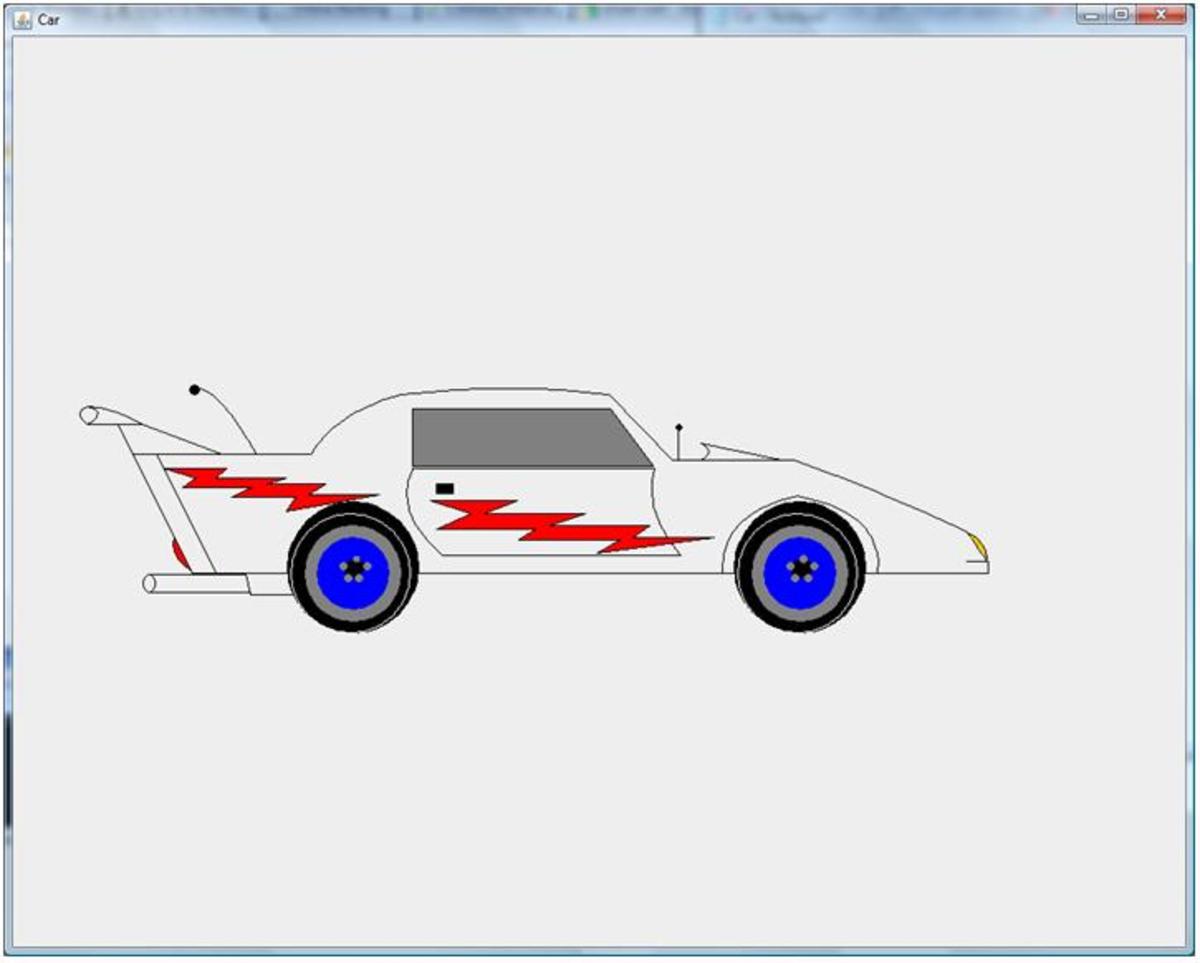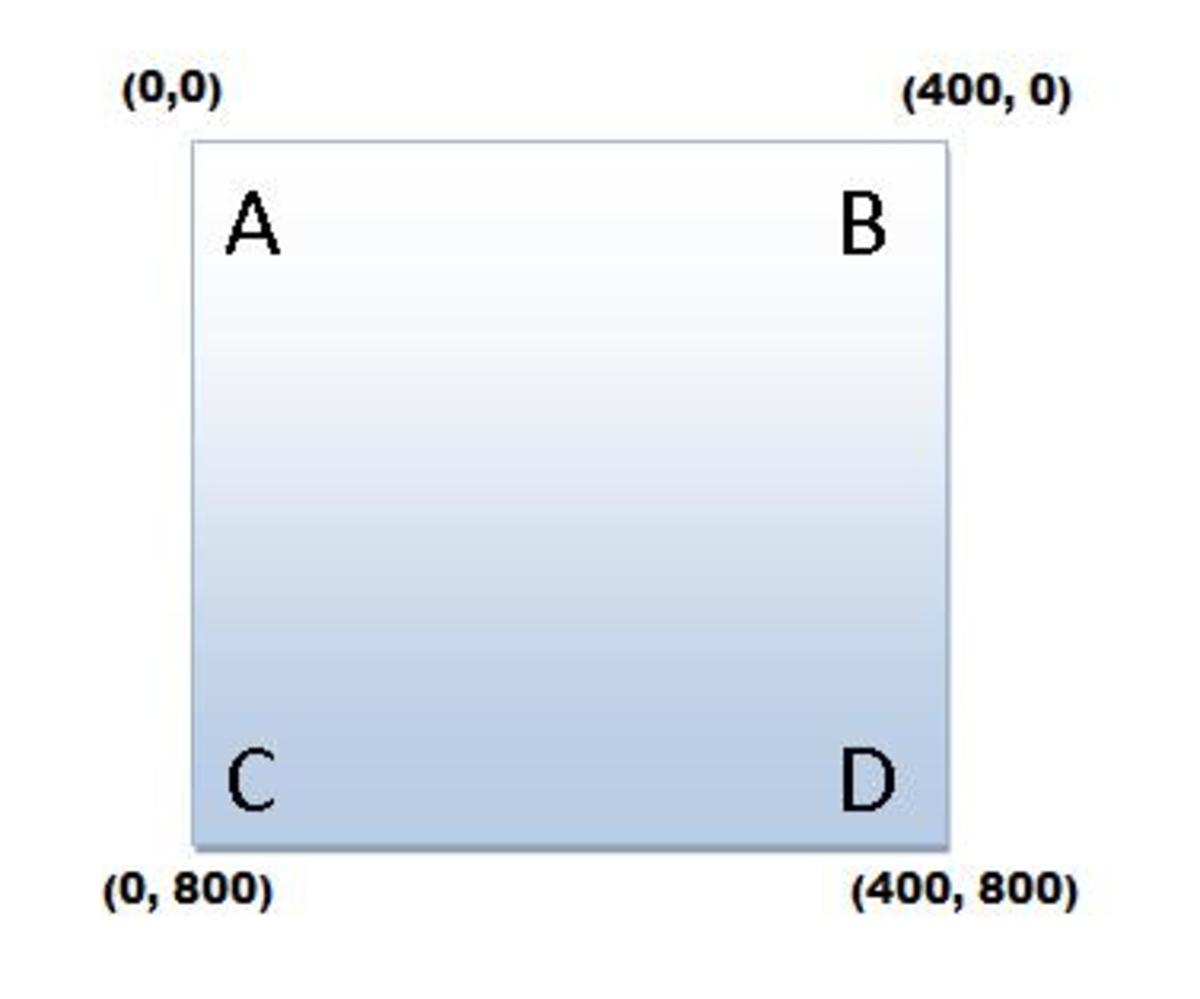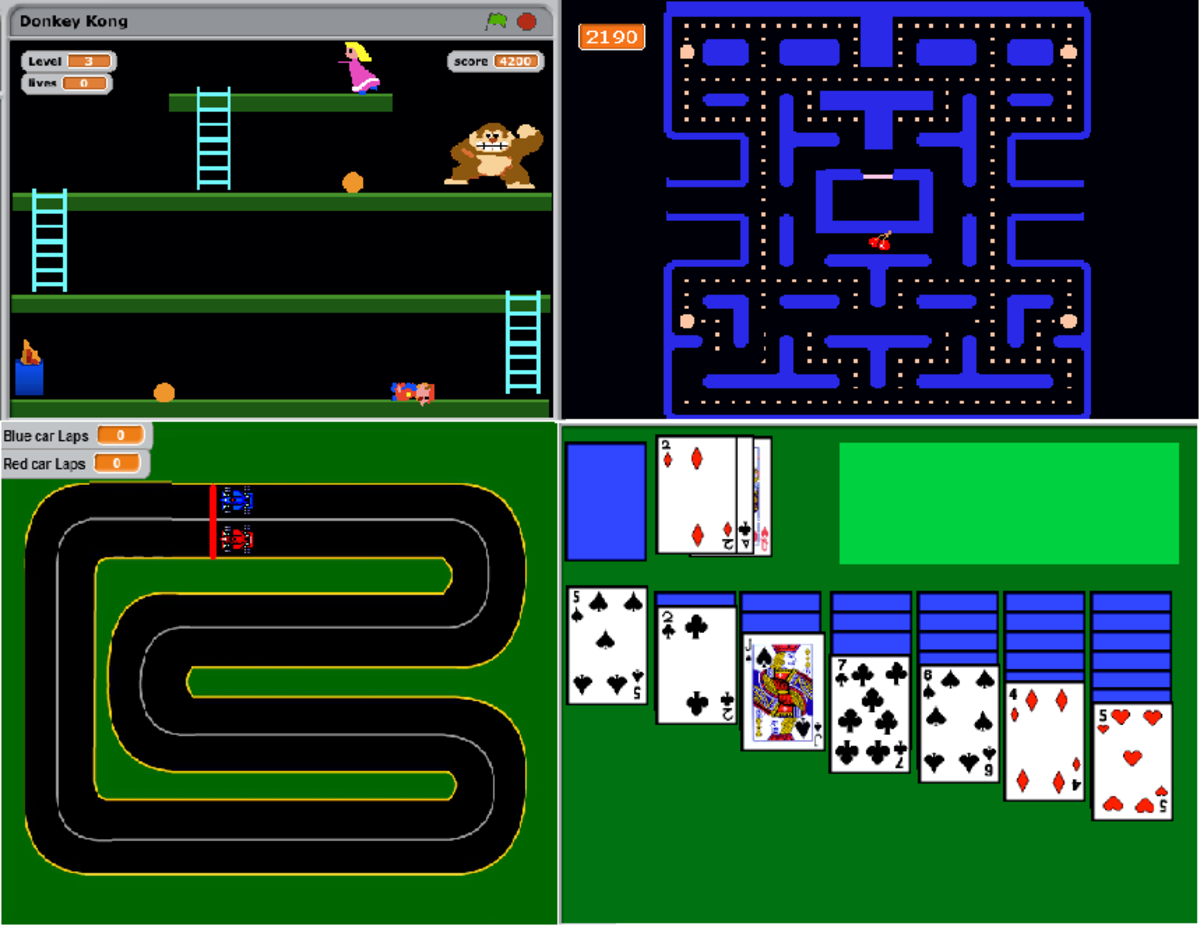- HubPages»
- Technology»
- Computers & Software»
- Computer Science & Programming»
- Computer Programming Tutorials
How to calculate GCD (Greatest Common Divisor) or HCF (Highest Common Factor) of numbers in Java ?.
Introduction
In this tutorial, you will learn how to calculate greatest common divisor or highest common factor of two or more numbers in Java. GCD or HCF of two or more numbers is nothing but a largest positive integer which divides numbers without a remainder. Suppose you want to calculate gcd or hcf of three numbers say, 8, 12 and 16 is 4. Here, 4 is the largest positive integer which divides 8, 12 and 16 without a remainder. If there is no largest number which produces remainder 0, than 1 is the largest gcd or hcf of those numbers. For example, gcd of two numbers 4 and 5 is 1. As there is no largest number other than 1 which divides them without a remainder. In this Java tutorial below you will find a video tutorial and highly commented Java source code which will demonstrate working of GCD calculation of three numbers.
Java video tutorial - How to calculate Greatest Common Divisor or Highest Common Factor of numbers in Java
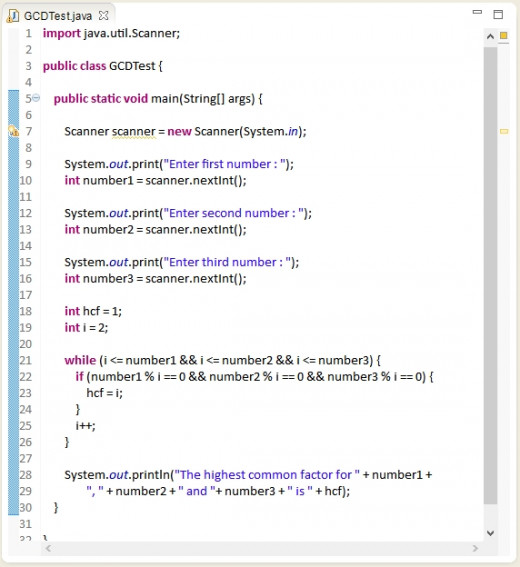
Java source code - How to calculate GCD or HCF of three numbers in Java
// Import the necessary Java classes used in the tutorial.
// Scanner class is been used in this tutorial to take user
// inputs from console. It is present in java.util package.
import java.util.Scanner;
// Create a demo class. In this tutorial it is GCDTest.
public class GCDTest {
// Create a main method in GCDTest class. It will be
// the starting point for execution of our program.
public static void main(String[] args) {
// Create a Scanner instance by taking help of System.in instance.
// System.in instance is a input stream that listens to Java console.
// It helps Scanner class in reading user inputs from the console.
Scanner scanner = new Scanner(System.in);
// In order to calculate GDC or HCF of three numbers, we prompt the
// user to enter first number on the Java console.
System.out.print("Enter first number : ");
// Create a integer variable number1. Using scanner class nextInt method
// take number entered by user and assign it to number1 variable.
int number1 = scanner.nextInt();
// Prompt the user to enter second number on the Java console.
System.out.print("Enter second number : ");
// Create a integer variable number2. Using scanner class nextInt method
// take number entered by user and assign it to number2 variable.
int number2 = scanner.nextInt();
// Prompt the user to enter third number on the Java console.
System.out.print("Enter third number : ");
// Create a integer variable number3. Using scanner class nextInt method
// take number entered by user and assign it to number3 variable.
int number3 = scanner.nextInt();
// Create two integer variables such as hcf and i. Here, hcf variable will hold
// greatest common divisor of three numbers. Initially lets assign it as a value
// 1. In mathematics if numbers dont have any greatest common divisor than
// 1 is the gcd or hcf of those numbers.
int hcf = 1;
// Create a integer variable i initially holding a value of 2. As testing of GCD starts with
// 2, 3, and so on.
int i = 2;
// In order to calculate GCD of numbers, we have to divide all those numbers
// with a particular number. This number should return remainder zero for all
// division and it should be the highest number of all.
// Here, we will loop from 2 till it is less than any of the three numbers.
while (i <= number1 && i <= number2 && i <= number3) {
// Since in order to calculate greatest common divisor of three numbers
// we provide an if check where we test that all three numbers must return
// remainder zero when divided by value of i.
// The remainder test is performed by modulus operator %.
if (number1 % i == 0 && number2 % i == 0 && number3 % i == 0) {
// Any value of i which returns remainder zero, will be hcf for that particular loop.
// Assigning hcf value of i.
hcf = i;
}
// incrementing the value of i for next number. This continues from 2 to any number which is
// less than all the three numbers entered by user.
i++;
}
// Finally, printing the gcd or hcf for those three numbers on Java console.
System.out.println("The highest common factor for " + number1 +
", " + number2 + " and "+ number3 + " is " + hcf);
}
}
Steps to implement -
Step 1 - Import the necessary Java classes used in the tutorial. Scanner class is been used in this tutorial to take user inputs from console. It is present in java.util package.
Step 2 - Create a demo class. In this tutorial it is GCDTest.
Step 3 - Create a main method in GCDTest class. It will be the starting point for execution of our program.
Step 4 - Create a Scanner instance by taking help of System.in instance. System.in instance is a input stream that listens to Java console. It helps Scanner class in reading user inputs from the console.
Step 5 - In order to calculate GDC or HCF of three numbers, we prompt the user to enter first, second and third number on the Java console.
Step 6 - Create three integer variable say, number1, number2 and number3. Using scanner class nextInt method take number entered by user and assign it to number1, number2 and number3 variable.
Step 7 - Create two integer variables such as hcf and i. Here, hcf variable will hold greatest common divisor of three numbers. Initially lets assign it as a value 1. In mathematics if numbers dont have any greatest common divisor than 1 is the gcd or hcf of those numbers. Create a integer variable i initially holding a value of 2. As testing of GCD starts with 2, 3, and so on.
Step 8 - In order to calculate GCD of numbers, we have to divide all those numbers with a particular number. This number should return remainder zero for all division and it should be the highest number of all. Here, we will loop from 2 till it is less than any of the three numbers.
Step 8 - In order to calculate greatest common divisor of three numbers we provide an if check where we test that all three numbers must return remainder zero when divided by value of i. The remainder test is performed by modulus operator %. Any value of i which returns remainder zero, will be hcf for that particular loop. Assigning value of i to hcf.
Step 9 - Increment value of i for next number. This continues from 2 to any number which is less than all the three numbers entered by user.
Step 10 - Finally, printing the gcd or hcf for those three numbers on Java console.
Output of the program -
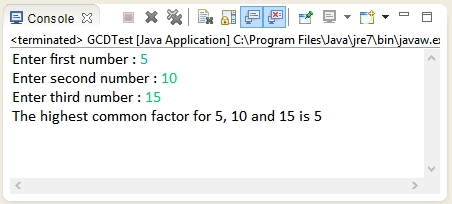
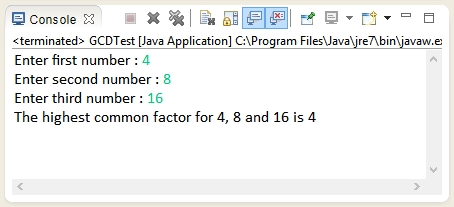
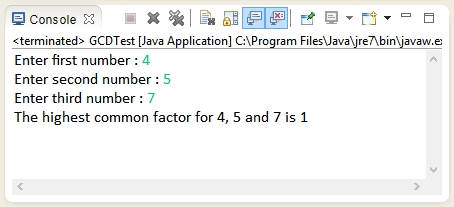
Output of program - Explanation
On running above Java source code, it prompts user to enter value for first, second and third integer for which GCD / HCF is to be calculated. It calculates and print GCD / HCF on the console.
Few examples -
- The highest common factor or greatest common divisor for 5, 10 and 15 is 5.
- The highest common factor or greatest common divisor for 4, 8 and 16 is 4.
- The highest common factor or greatest common divisor for 4, 5 and 7 is 1.
Watch my complete Youtube channel below -
- Java Hubberspot - YouTube
Hello friends, I am Dinesh Varyani. Owner of blog http://www.hubberspot.com . This channel will have Java Programming Tutorials for beginners ... Visit my Ja...

